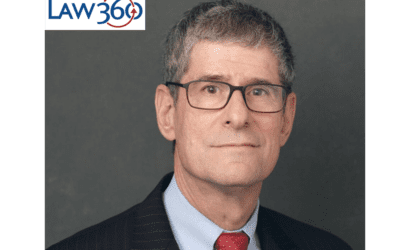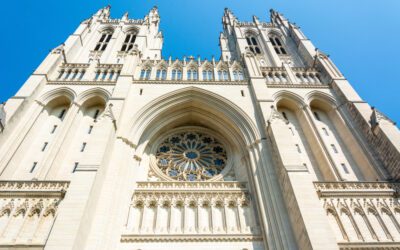Acting in response to consumer complaints about surprise medical bills, Congress enacted a law known as the No Surprises Act,[1] which went into effect on Jan. 1, 2022.[2]
The law’s intent was to prevent surprise billing by requiring nonnetwork health providers to provide patients with an advanced explanation of benefits containing a good faith estimate of anticipated charges.
The law also established an independent dispute resolution, or IDR, process to enable providers and insurers to determine out-of-network reimbursement rates for services that would prevent patients from being billed for the balance of charges remaining after the payment amount was established.
To date, there have been very few court rulings relating to the No Surprises Act; and none have addressed the issues raised in Guardian Flight LLC v. Health Care Service Corp.,[3] decided by the U.S. District Court for the Northern District of Texas on May 30.
The Guardian Flight case, which was brought by two air ambulance providers, found the NSA lacks a judicial remedy in the event that a health insurer refuses to pay the reimbursement amount established by the independent review process.
This ruling, if upheld, throws a huge monkey wrench into the elaborate protections the NSA was enacted to provide. The decision in Guardian Flight makes the IDR process illusory, thus leaving providers with no means to collect unpaid charges for services rendered.
The court in Guardian Flight began its opinion by presenting a background on air ambulance charges and the No Surprises Act. Prior to the enactment of the NSA, few air ambulance providers were in any health insurers’ networks. Consequently, there was no agreement between the air ambulance providers and insurers as to the amount of reimbursement that would be provided for air ambulance transportation.
The result was that the air ambulance providers would render bills for services; and if the bills were not fully reimbursed by insurance, the providers would seek to recover the remaining balance owed from the patient.
To avoid the significant financial liability that could be imposed on patients subject to balance billing, Congress passed the NSA, establishing an IDR system[4] that the court summarized as follows:
First, the provider and the insurer negotiate the price for the service. Second, if these negotiations fail, the provider and insurer have four days to begin the IDR process. Third, a certified IDR entity is selected by either the parties or the Department of Health and Human Services (“HHS”). Fourth, the certified IDR entity determines whether the parties’ dispute is eligible for IDR and then decides the amount owed to the provider by the insurer.
The plaintiffs in this lawsuit participated in the IDR process and a reimbursement amount was determined, but Health Care Service Corp.[5] failed to reimburse the air ambulance providers, who then sued the insurer.
The lawsuit contained three claims — an action under the NSA, an Employee Retirement Income Security Act claim alleging they were due the payment negotiated under the IDR and a claim for unjust enrichment, which asserted that HCSC was unjustly holding funds that belonged to the air ambulance providers.
HCSC moved to dismiss the lawsuit, and the court dismissed the complaint after finding that the plaintiffs failed to state a cause of action under the NSA, because the statute lacks provisions establishing a private cause of action to enforce an IDR award. The court also found a lack of standing to bring an ERISA claim, and the court further determined that the plaintiffs failed to state a claim for unjust enrichment.
The court examined the NSA statute and found that unlike the Federal Arbitration Act, which explicitly empowers parties to an arbitration to seek judicial intervention to confirm or enforce arbitration awards,[6] the NSA lacks any comparable provisions.
The court also rejected the plaintiffs’ claim that the NSA provided an implied cause of action based on the absence of any statutory language showing that Congress intended to create a remedy. The court said that “Plaintiffs present compelling arguments that the NSA created a right, they fail to identify any ‘statutory intent’ to create a remedy to enforce that right.”
Here, too, the court offered a comparison to another law — Title IX of the Civil Rights Act. In Cannon v. University of Chicago in 1979, the U.S. Supreme Court determined that because Title IX contained a fee-shifting provision entitling prevailing parties to an award of attorney fees, an implied cause of action existed.[7] In contrast, the NSA lacks any comparable provisions.
While it was clear to the court that Congress had the Federal Arbitration Act in mind when it passed the NSA, the court noted the statute’s lack of any language granting courts the authority to enforce awards, leading the court to observe: “If Congress intended to create such a procedural mechanism under the NSA, it simply could have incorporated one more section from the FAA, yet Congress did not do so.”
Thus, the court ruled the absence of any enforcement remedies meant Congress did not intend for there to be any such remedies.
The court rejected the plaintiffs’ arguments that the provision in the NSA stating that a decision made by an IDR entity “shall be binding” and another provision mandating that an IDR award be paid within 30 days showed an intent to create a private cause of action.
The court found that while the NSA provided a right to providers to contest a denial of reimbursement, it failed to provide them with a remedy. Thus, the court dismissed the plaintiffs’ NSA claim.
Turning to the plaintiffs’ ERISA claim, the court determined that the providers lacked standing despite having valid assignments of benefits from the patients. The court’s rationale was that the patients did not suffer any concrete injury because the NSA relieved them of any financial responsibility to pay the air ambulance companies’ bills. Nor would the patients have any responsibility to pay the IDR awards.
The unjust enrichment claim also failed because first of all, the court found that a claim for unjust enrichment was not an independent cause of action.
Although the court acknowledged that plaintiffs had also pleaded a claim for quantum meruit, i.e., the value of the services, the court ruled that such a claim failed because the air ambulance providers did not provide services to HCSC, a necessary element of such a cause of action.
Providing services to the insureds was not the same as providing services to HCSC. The court explained:
Just because Plaintiffs now must resolve payment disputes with health insurance companies instead of directly with the beneficiaries does not mean that healthcare providers now confer a benefit directly to a health insurance company by providing services to its insureds.
Finally, the court held that the plaintiffs could not cure the defects in their pleading by amendment, and therefore dismissed the case with prejudice.
This impact of this ruling severely undermines the No Surprises Act. HCSC was obligated to pay the IDR award under the law yet was able to shirk that obligation and thumb its nose at the plaintiffs.
Despite the court’s findings in relation to what it perceived Congress intended, realistically, Congress could not have intended that the elaborate statutory scheme it established to relieve patients of financial liability when they incur out-of-network medical charges could simply be ignored by insurers.
However, the court undeniably identified a significant flaw in the NSA — that the existing statutory language failed to authorize aggrieved parties to bring a cause of action and receive a remedy.
Based on the thoroughness of the court’s analysis, it appears unlikely that the U.S. Court of Appeals for the Fifth Circuit or even the Supreme Court would overturn the decision.
While it may seem obvious that the procedures under the IDR process are arbitral and subject to the Federal Arbitration Act, the lack of any provisions in the NSA adopting the FAA’s enforcement provisions is clearly problematic.
Moreover, the providers who are denied reimbursement under the NSA are precluded from seeking alternative remedies arising under state law due to ERISA preemption.[8]
Because the NSA amended ERISA, any claim made by a provider holding an assignment of benefits against a health benefit plan subject to ERISA would be preempted despite constitutional provisions in many states that provide a remedy for any injury, including commercial damages.[9]
Given the huge potential impact of this ruling, the agencies that have enforcement power over the NSA — the U.S. Departments of Labor, Health and Human Services, and the Treasury — should coordinate their efforts and take steps to promptly fix this glaring omission in the NSA.
Mark DeBofsky is a shareholder at DeBofsky Law Ltd.
This article was first published by Law 360 on June 27, 2024.
[1] 29 U.S.C. § 1185e (the No Surprises Act was also included in the Internal Revenue Code and the Public Health Services Act in addition to ERISA).
[2] The American Hospital Association published a detailed summary of the No Surprises Act, which is available at https://wwwaha.org/system/files/media/file/2021/01/detailed-summary-of-no-surprises-act-advisory-1-14-21.pdf.
[3] Guardian Flight LLC v. Health Care Service Corp., 2024 U.S. Dist. LEXIS 95973, 2024 WL 2786913 (N.D. Texas May 30, 2024).
[4] 42 U.S.C. § 300gg-111(c)(1)–(5).
[5] HCSC is the parent corporation of Blue Cross Blue Shield of Illinois, BCBS of Texas, BCBS or Oklahoma, BCBS of New Mexico, and Caring for Montanans, Inc.
[6] 9 U.S.C. § 9.
[7] See, Cannon v. Univ. of Chicago , 441 U.S. 677 (1979).
[8] Section 514(a) of ERISA (29 U.S.C. § 1144) broadly preempts any state laws that “relate to” employee benefit plans.
[9] See, e.g., Illinois Constitution, Article I, Section 12: “Every person shall find a certain remedy in the laws for all injuries and wrongs which he receives to his person, privacy, property or reputation. He shall obtain justice by law, freely, completely, and promptly.”







